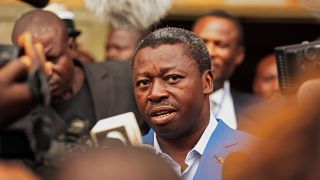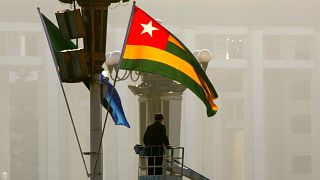Togo
Togo's lawmakers launched consultations across the west African nation on Monday (Apr. 08). The move comes after a controversial constitutional reform was passed in late March by lawmakers whose legitimacy has been challenged.
Togolese lawmakers will conduct for three days a tour to "listen to and inform civilians on the constitutional reform".
Customary rulers and selected groups are reported to be the main target of the consultations.
The proposed Constitution which was passed on March 25, grants parliament the power to choose the president, doing away with direct elections.
Instead of a renewable 5-year term, the proposed bill restricts the power of future presidents and introduces a one-term limit. The reform hands over greater power to a figure similar to that of a prime minister, officially called the president of the council of ministers. This individual will either be "the leader of the party which secures the majority during the legislative elections"; or the leader of the winning coalition of parties.
But the opposition fears the role could become an avenue for Gnassingbé to extend his grip on power.
Togo's recent history has been dominated by the Gnassingbé clan which has ruled since 1967.
Late on March 25, Togolese lawmakers adopted a new constitution introduced by members of the ruling party which transitions the West African nation from a presidential to a parliamentary system.
However, the mandate of some of these MPs was set to expire late last year.
The opposition argues that the Constitution only allows these lawmakers to "manage urgent and current affairs" and that a constitutional reform demands a referendum.
No new date
After the vote on March 25 and the public outcry which ensued, the presidency ordered the constitutional reform back to parliament.
In a statement published on April 3rd, the office of President Faure Gnassingbé announced that the president met members of the bureau of the National Assembly.
Gnassingbé urged them to pay close attention to the "concerned actors" in order "to take into account all contributions susceptible to enrich" the Constitution.
The National Assembly's bureau therefore expressed the need for more consultations over the reform.
This, according to the communiqué, led the government to postpone the April 20 legislative and regional elections. The new date for the polls was however not unveiled.
Some 4.2 million Togolese were registered to vote.














Go to video
Togo protest crackdown raises fears of worsening political crisis
00:29
At least 7 people killed during recent anti-government protests in Togo
Go to video
Protesters gather in Ivory Coast, demand Thiam's return on electoral list
02:13
Cameroon: Police, opposition supporters clash as election looms
01:25
Burundi awaits results of local and parliamentary elections
11:18
EU invests in Douala–N’Djamena corridor as it shifts from donor to investor in Africa